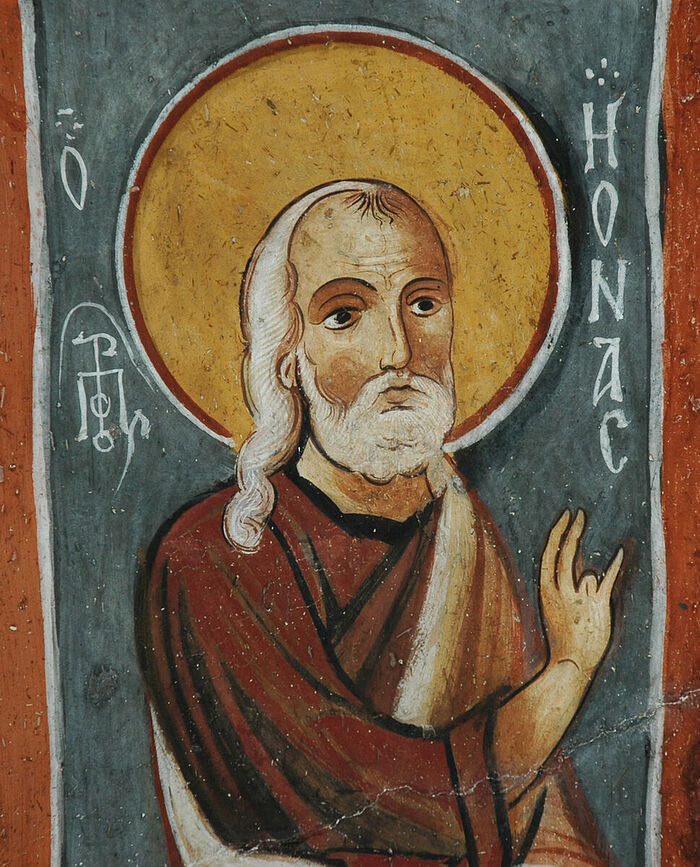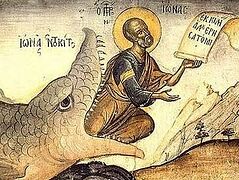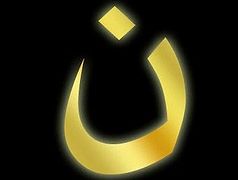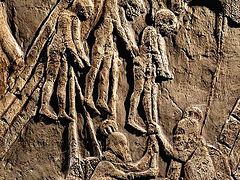The Prophet Jonah is most known for his three days in the belly of the great fish, which clearly foreshadowed the Lord’s three days in the belly of the earth. As Jonah was then spewed forth from the beast, so Christ then arose. The Lord Himself speaks of this “sign of the Prophet Jonah” five times in the Gospels of Matthew and Luke, and the entire book of the Prophet Jonah is read in the Divine Liturgy for Holy Saturday.
But every word of Scripture is Divinely inspired by God, and there are other images and lessons we can take from the short book of the Prophet Jonah.
Just as Jonah’s life ties to that of the Incarnate Christ, so it also parallels events that came before, and foreshadows events that came after the Resurrection. The Scriptures show us that God is not simply the author of literary symbolism, but, in fact, He fills all of creation and history with symbolism that reveals His presence and the truth of the Christian faith. Scripture depicts history symbolically because God’s providence guides history symbolically.
Sodom and Gomorrah and Nineveh
The book of Jonah begins: Now the word of the LORD came unto Jonah the son of Amittai (Jon. 1:1), and this formula is repeated after Jonah’s misadventure at sea (3:1). God calls upon Jonah to preach repentance to Nineveh, for their wickedness is come up before me (1:2).
First, it is notable that the Lord does not simply speak to Jonah, but rather the word of the LORD came unto Jonah, which at least hints at a “separate” existence of the word of the Lord. As Christians enjoying the fullness of the revelation of God, we can see indications of the Holy Trinity already in the Old Testament. As the Gospel of John tells us explicitly, Christ is the hypostatic Word of God, and according to Orthodox Tradition, it was the pre-incarnate Christ Who appeared to the prophets.
Similarly, when three angels visit Abraham at the Oak of Mamre, we are told that the LORD appeared unto him (Gen. 18:1). Later, the LORD speaks of the grievous sins of Sodom and Gomorrah, whose cry is great, which is come unto Me (18:20-21).
Thus, we see that Nineveh is a new Sodom and Gomorrah, only, while not even ten righteous could be found in Sodom and Gomorrah and their continued sin led to their destruction, the entire city of Nineveh was eager to fast and repent, from the king down to the animals, and so it was spared (and in fact, because it was spared, Nineveh, as the capital of the Assyrian Empire, later became the instrument by which the Kingdoms of Israel and Judah were ravaged).
The self-emptying of the king
Jonah 3:6-7 shows us that the king of Nineveh not only proclaimed a fast for the entire city, but he himself also arose from his throne, and he laid his robe from him, and covered him with sackcloth, and sat in ashes. The king didn’t stand aloof from his people, but identified himself with them and joined them in their lowliness.
Likewise, Christ the King laid aside His glory, covered Himself with the form of a servant,1 and was made in the likeness of men (Phil. 2:7), who are made of the dust of the earth.
Another Adam
Returning to God’s initial call to Jonah, we see that he flees from the presence of the LORD. This clearly hearkens back to Adam and Eve who heard the voice of the LORD God walking in the garden in the cool of the day and hid themselves from the presence of the LORD God (Gen. 3:8).
As Jonah was swallowed by the great fish for his flight from God—an image of death—so Adam and Eve, and all us after them, began to die, often depicted in Scripture as being swallowed up by the earth.2
Conversely, Christ descended into the belly of the earth not because He had fled from God, but precisely because He perfectly obeyed God. Thus, though He died in His human nature, Christ was not swallowed up by death, but rather He swallow[ed] up death in victory (Is. 25:8).
Who redeemeth thy life from corruption
While Jonah is a new Adam in that he imitates his desire to hide from God, as we have already said, His life also foretells that of Christ, Who is the New Adam in that He brings life rather than death.
After he is delivered from the belly of the great fish, the Prophet Jonah proclaims: Thou brought up my life from corruption, O LORD my God (Jon. 2:6). This echoes Psalm 102:4, which glorifies the God Who redeemeth thy life from corruption, which is sung as the First Antiphon in the Divine Liturgy—the celebration of the Lord’s Resurrection.
While Jonah was redeemed from corruption, God did not suffer [His] Holy One to see corruption at all, as the holy Apostle Paul preached, quoting another Psalm (15:10). As the Lord of Glory, Christ’s Body did not undergo any corruption, though it lay in the grave.
Calming the sea
The direct occasion for Jonah to be cast into the sea and swallowed by the beast is the great tempest that the Lord sends, which threatens the life of every man onboard the ship sailing for Tarshish. When the shipmaster sees that Jonah is sleeping while all the other mariners and passengers are crying out to their respective gods, he says: What meanest thou, O sleeper? arise, call upon thy God, if so be that God will think upon us, that we perish not (Jon. 1:4-6).
There is also a great tempest in the life of the Savior, when He is crossing the Sea of Galilee with His disciples (Mt. 8:23-27, Mk. 4:35-41, Lk. 8:22-25). Christ too is asleep on the boat and has to be awoken by the others, who also fear for their lives as did the men who were sailing with Jonah. But where the men implored the Prophet Jonah to call upon his God, the Disciples approach Christ differently, not imploring Him to call out to God, but rather imploring Him to save them Himself.
Christ calms the storm, and the Disciples marvel, saying, What manner of man is this, that even the winds and the sea obey him! (Mt. 8:27), just as the sea had obeyed the Lord in Jonah’s time, causing the men to marvel in awe before Him (Jon. 1:15-16).
A willing sacrifice
And as Jonah willingly offers himself up as sacrifice (Jon. 1:12) and so descends into the belly of the fish, so Christ is our sacrifice, willingly descending into the belly of the earth.3
The Great Commission
Finally, we can see several points in which the historical story of the Prophet Jonah points ahead to the Great Commission, given by the Lord to His holy Apostles (Mt. 28:19-20).
God’s call to Jonah to Arise, go to Nineveh (Jon. 1:2) parallels the call to the Disciples to Go ye therefore, and teach all nations (Mt. 28:19). And their message is the same: Repentance. On the day of Pentecost, the holy Apostle Peter cries out: Repent, and be baptized (Acts 2:38).
Jonah’s deliverance from the watery depths and the corruption and “death” of the belly of the fish parallels the Baptism preached by St. Peter, which plunges us into Christ’s death in the waters of the Sacrament, and raises us again to new life, offering us deliverance from sin and death. After undergoing this type of Baptism, Jonah is ready to obey the Lord.
Though he initially rejects God’s call, he does, in the end, preach the word of God to the people of Nineveh, and they receive it and are spared destruction. Likewise, although the Apostles abandoned and betrayed the Lord when He was given up to death, they did, in the end, heed His call and preach the word of God throughout the known world, converting millions, who were thus spared spiritual destruction.
Finally, the Lord’s word to the Apostles that I am with you always, even unto the end of the world (Mt. 28:20) is foreseen in God’s constant care for Jonah, both when the prophet disobeys and then obeys Him, and even when He is despondent and entreats the Lord to take his life (Jon. 4:3).
Thus, we see that the whole of salvation history is woven throughout the life of the Prophet Jonah, which hearkens back to Adam and ahead to Christ and the Apostles, and to the path of every one of us in the Church. When it comes to the God of history, symbolism is no mere literary device, but is rather the manifestation of God’s presence and providence, calling us to faith and salvation.




